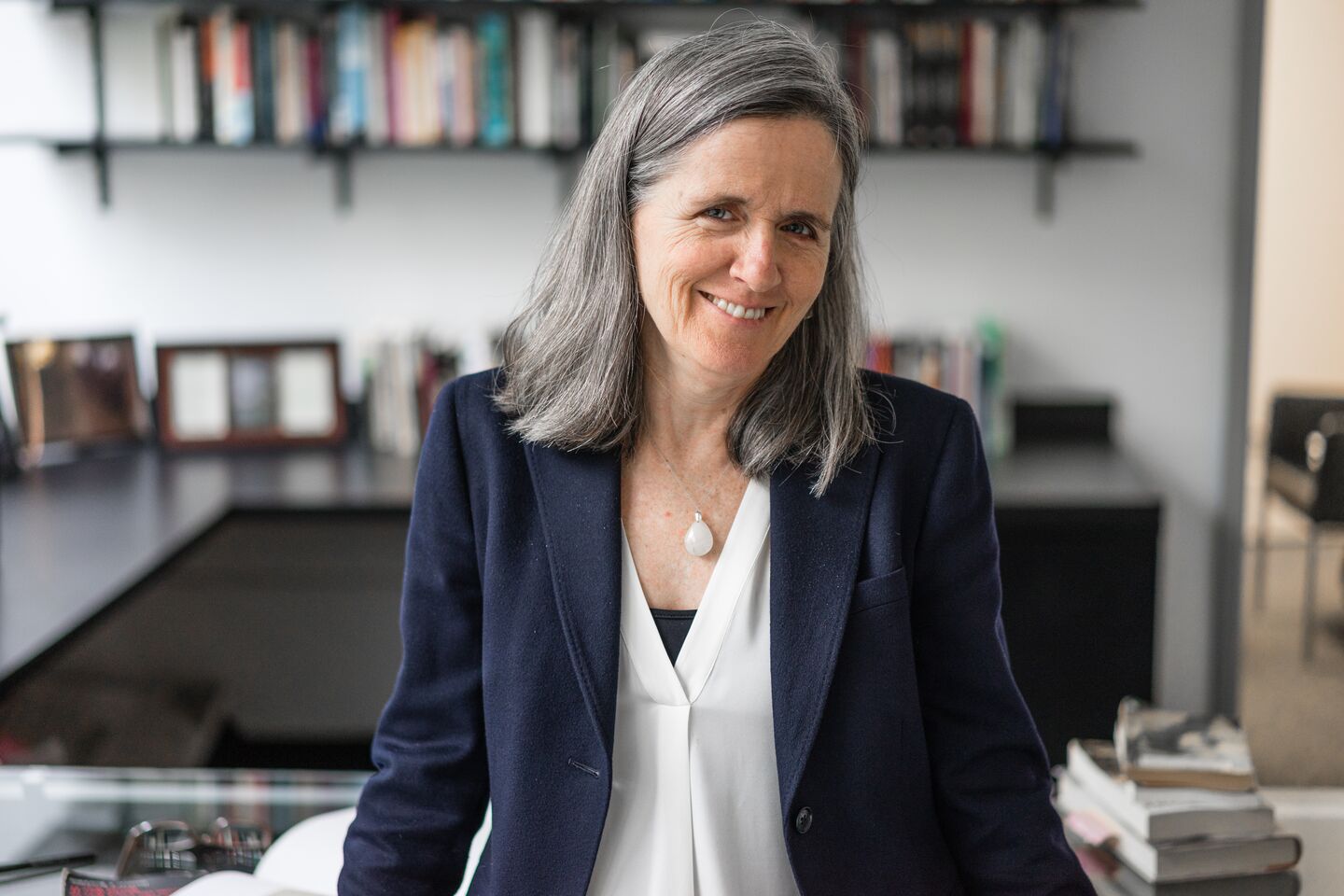
Eugene Lang College Dean Stephanie Browner Awarded National Endowment for the Humanities Grant
The Internet has the capacity to store millions of digitized books, making rare and out-of-print texts available to people around the world. But this information can be lost if no one maintains the content and server. Print, despite its physical and space limitations, lasts as long as books are shelved somewhere. Stephanie Browner, Dean of Eugene Lang College of Liberal Arts at The New School, understands the importance of both digital and print media for the preservation of literature and recently received a grant for her work in this area from the National Endowment for the Humanities (NEH).
In August, Browner was awarded $206,330 by the NEH to prepare a two-volume scholarly print edition of all known short stories by African-American writer Charles W. Chesnutt. She is also part of a project, supported by a $292,627 NEH grant, to redesign the Charles Chesnutt Digital Archive. “The NEH’s low acceptance rate, and peer review process, makes its support for a scholarly print edition especially meaningful,” says Browner. “Print and digital are both important for preservation and dissemination of an author’s work. Digital has a wider reach; and print editions typically offer more scholarly content.”
Chesnutt (1858–1932) was the first African-American writer to receive widespread attention as a literary artist. A major fiction writer of his era — he was the first African-American writer published in the Atlantic Monthly — he was a pioneer in his treatment of racial themes. “Chesnutt was added to the canon in the 1960s and 1970s, during the Civil Rights Movement, but he has not yet received scholarly editorial treatment,” says Browner. “Scholarly editions are rich with commentary provided in footnotes and introductions that give historical context and information. Scholarly editions are the foundations for research and teaching.”
Browner brings many of The New School’s core values to this project. “There is a new return to archival work as all those working in cultural fields seek to expand and deepen our understanding of our cultural legacy,” she says. “People are working with a small slice of Chesnutt’s work. Some of his work has never been printed, and some is out of print. He’s the first African-American to have his stories in syndication — people were reading him across the country. There’s so much that’s just below the surface that people don’t know about him.”
Browner first delved into Chesnutt’s work in the 1990s when she was at a liberal arts college in Kentucky and taught a course on building a literary website. “This was before Dreamweaver, so I taught myself how to code. The students and I built the website from the ground up,” says Browner. “Through that class, we created what became the first digital database on Chesnutt. Later Oxford University Press approached me to create a scholarly edition of Chesnutt’s work, since I was the founder of his digital archives.” While Browner came to literature and teaching naturally — both of her parents were teachers — coding was a new skill for her. “Coding is a craft and an art. It’s interpretative and it has social responsibilities.”
According to Browner, “The New School has always had an expansive understanding at the Western canon.” She has taught classes about Chesnutt at Lang, including a course in collaboration with Parsons’ Communication Design program. Students in Lang’s Literary Studies program explored Chesnutt manuscripts and writing process, while the Parsons students worked on designs for a hoped-for future exhibition on Chesnutt at the Morgan Library, Browner’s dream project. “The type of collaborative projects that we have at The New School gives us the opportunity to teach courses that put liberal arts and art and design in dialogue with each other. I recently ran into a Parsons alum who really enjoyed that class and now crafts her own books. It would be wonderful to work with our students and alums to create art books for Chesnutt’s work.”
Working with both print and digital led Browner to look at how we name, preserve, and celebrate what is important. “It’s time for Chesnutt to have both a digital archive and a scholarly print edition, especially since none of us know how things will survive in the future.”